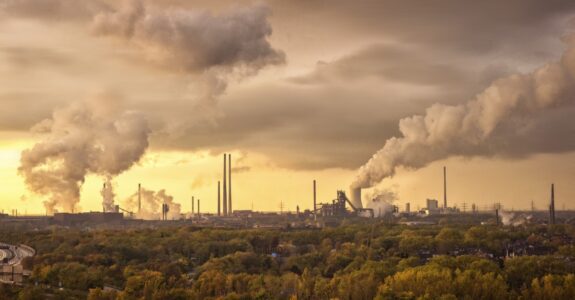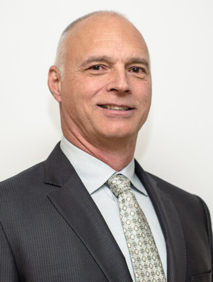
Effective and Efficient Stack Gas Composition Analysis for Carbon Capture Projects
March 6, 2024
Carbon capture and storage (CCS) will play a key role in the journey to reduce carbon dioxide (CO2) emissions in the coming years. CCS projects are not only beneficial to the environment, but they also introduce new employment opportunities, support economic growth, and introduce lower-carbon industries and innovation.
Facility operators in many industries are recognizing the benefits of CCS and are exploring the technology options available to them. However, selecting the appropriate technology for a facility requires an in-depth understanding of each potential source and the stack gas composition of each source. This is because there is a range of technologies available, and depending on the technology selection, various inherent pollutants in the stack gas can hinder the CO2 scrubbing solution’s effectiveness at capturing carbon.
As companies set their CCS initiatives into motion, they need to have a strong understanding of their facility’s stack gas composition to be able to choose the best technology for a particular process. Knowing stack gas composition also helps companies determine whether they need to remove certain pollutants from the stack before moving forward with their carbon capture efforts.
Fortunately, when it comes to analyzing and understanding stack gas composition for carbon capture projects quickly and accurately, Montrose can help using our two-phased approach. Here’s how:
Employing continuous measurement technology provides data for a wide variety of compounds while being minimally intrusive
Phase One centers around monitoring stack contaminants using non-intrusive and highly efficient continuous monitoring instrumentation in the field. Montrose utilizes Fourier Transform Infrared Spectroscopy (FTIR), following EPA Method 320, coupled with Total Hydrocarbon analysis, which will gather a large baseline dataset in real-time. This will help gain a good initial understanding of the stack gas make-up. Understanding that FTIR data can’t always be taken at face value, our team has the additional benefit of having a team of highly experience and skilled Spectrometrists to perform secondary data validation on each FTIR carbon capture data set to ensure the highest quality, reliability, and repeatability. This additional level of quality control ensures the data we produce is reviewed for any possible interferences and the results we are reporting are accurate.
We have experienced teams well versed in the critical US EPA Methods required for carbon capture stack characterization programs
The ability to gain a highly detailed understanding of stack gas composition for carbon capture requires a diverse skill set, from having the right equipment, to having the expertise to perform less common US EPA methods, to being able to run a program with a large on-site team, Montrose is set up to proceed to Phase Two after detailed understanding of the site has been met during Phase One.
Phase Two involves wet method sampling where stack gas samples are acquired and subsequently sent to an accredited laboratory for analysis. The suite of tests can include anything from Particle Size Distribution, Total, Filterable and Condensable Particulate to Trace Metals, Sulphur compounds and various Organic analyses. With over 25 potential carbon capture sources analyzed to date, our team has the training and experience to deliver this full suite of tests for any project.
We can help you progress to routine stack gas composition sampling much quicker
Because of our extensive experience employing FTIR in the field, our first-hand experience with key EPA Methods, and deep bench of highly skilled technicians and analysts, we can help you gain fast insight into your stack gas composition.
While conducting stack gas compositional analysis in Phase One, our on-site team will note if any modifications need to be made to the stack or the surrounding area to ensure success for Phase Two. In other words, we have the capabilities and expertise to help you lay the foundation for effective understanding of your stack gas compositional analysis for carbon capture—and we can help to inform your short- and long-term CCS efforts. Reach out, and let’s talk about your specific carbon capture needs and how we can help.
 Leena Thomas
Leena Thomas
Business Development Manager
With over a decade of dedicated experience in environmental laboratory services and three years specializing in air quality services, Leena Thomas brings a wealth of knowledge and expertise to the field. Possessing a Master’s degree in Environmental Science, Ms. Thomas has leveraged a solid foundation in scientific principles to excel in sales, bridging the gap between technical solutions and client needs.
Ms. Thomas has spent the last 20 years honing her skills, working with diverse clientele ranging from government agencies to private corporations. She has developed a keen understanding of environmental regulations and compliance standards, assisting clients in navigating complex regulatory frameworks while offering innovative solutions to their environmental challenges.
Over the last three years, Ms. Thomas has supported the growth and development of the Montrose air services business in Canada, focusing on emissions reductions through fugitive emissions management, emissions testing, and air quality consulting specializing in regulatory reporting, dispersion modeling, incident modeling and emissions inventory development.
 Michael Denomee
Michael Denomee
QSTI Principal
Michael Denomme is a subject matter expert in the field of industrial source emission testing with over 40 years of experience. Prior to joining Montrose in 2019, Mr. Denomme was the President and co-founder of LEHDER Environmental Services Limited. Since its inception in 1995, LEHDER developed into one of the largest air quality/stack testing companies in Canada. He has over 40 years of experience in the environmental management/air quality field and has designed/managed/conducted hundreds of stack sampling projects at industrial locations throughout North America.
In 2013, Mr. Denomme received the Matthew S. DeVito Award from the Source Evaluation Society (SES). This award recognizes an individual’s superior ethical conduct, and contributions in measurement data quality, representativeness, and safe implementation of source testing.
Over the last 30 years, Mr. Denomme developed and executed comprehensive stack sampling training programs for various institutions in Canada, and abroad including the India Central Pollution Control Board (2004). He represented Canada and Ontario at Clean Tech Missions in India (2008) and China (2017). He is currently a member of the Board of Governors at Lambton College in Sarnia, Ontario.

